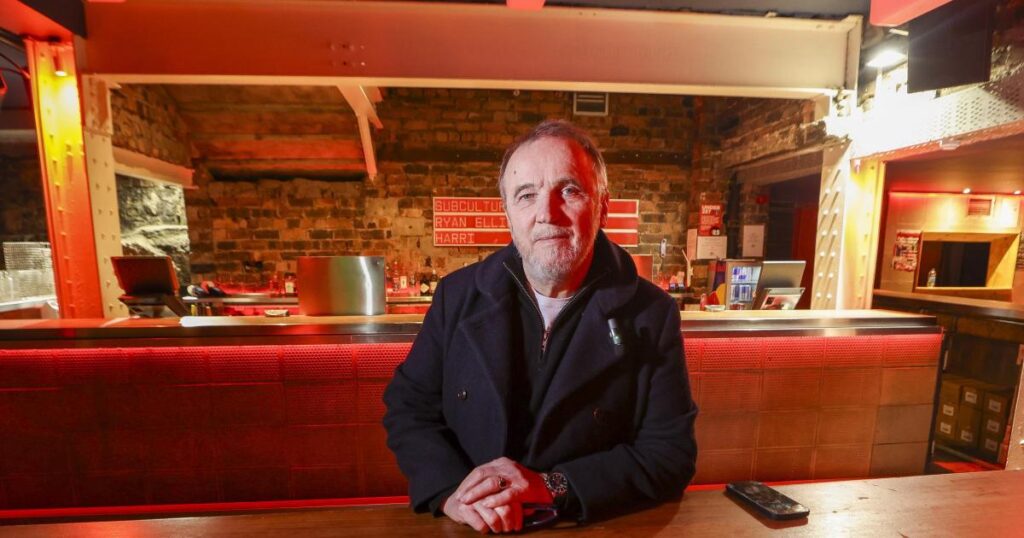Mike Grieve, managing director of Glasgow’s iconic Sub Club, said the Scottish Government’s treatment of the nightlife industry is lagging behind the rest of the UK, and funding is too challenging for many in the sector to access.
Mr Grieve, who chairs the Scottish Night Time Industries Association (SNTIA) and is a director of the Night Time Industries Association (NTIA), added that he is working on a Scottish Manifesto for the Night Time Economy due to be published in the coming weeks.
Scotland lost more than 30% of its nightclubs in four years. The number of venues dropped from 125 to 83 between June 2020 and June 2024, according to the latest statistics from CGA Neilson.
Speaking at a Save The Scene panel for stakeholders in Scotland’s nightlife sector, Mr Grieve said: “The Scottish Government has no interest in any cutting-edge culture. They see culture as that traditional, high culture. The kilts and shortbread culture. They don’t actually see what we do as being cultural in the right way.”
He added: “They certainly don’t support it financially compared to the rest of the UK.”
In the 2024-25 financial year, eligible retail, hospitality and leisure properties in England were offered 75% rates relief. From April 1 it was reduced to a 40% discount on business rates bills, capped at £110,00 per business. The UK Government described the move as an interim safeguarding measure until a permanent reform of the business rates system is introduced in 2026.
A spokesperson for the Scottish Government said: “Scotland’s hospitality industry benefits from the most generous small business rates relief in the UK, with around half of properties in the retail, hospitality and leisure sectors continuing to be eligible for 100% Small Business Bonus Scheme relief.
“The Scottish Budget 2025-26 provides 40% non-domestic rates relief for hospitality premises liable for the Basic Property Rate, including grassroots music venues with a capacity of up to 1,500 people, capped at £110,000 per business.”
Hospitality businesses with a rateable value up to and including £51,000 are liable for the Basic Property Rate. This excludes around 2,600 hospitality businesses in Scotland, such as larger venues, with a rateable value above the threshold. In 2025-26, the Scottish Government said it plans to freeze the Basic Property Rate and provide a package of reliefs worth an estimated £731 million.
Attendees at the event on April 9, including club promoters, DJs, musicians, sound and light technicians and more, suggested they “hadn’t experienced any effects of government funding” on their practices.
Mr Grieve said: “The reality is, sadly, the funding. What funding there is is inaccessible to people. I doubt there are very many people in this room who would know how to access any funding for any kind of cultural activity. And I think that’s almost deliberate in our country.
“Sadly, I think you go to other countries in Europe, they make it easy for people to access whatever funding is there.”
Creative Scotland distributes Scottish Government and National Lottery funding for the arts, screen and creative industries in Scotland. It supports the live music sector via its Open Fund. The Open Fund was temporarily closed last year due to budget uncertainty, which led to a major crisis in the arts sector. Creative Scotland is currently under review.
A spokesperson for the Scottish Government said: “We have demonstrated steadfast support for culture and the arts in Scotland, with game-changing increases in funding for the sector.
“The highest ever number of artists and organisations will receive regular funding from Creative Scotland this financial year – including grassroots and community culture as well as the music sector.”
Referencing the independent Nightlife Taskforce introduced in London in February and the Dublin City Night-time Economy strategy released in autumn 2024, Mr Grieve said: “There are other examples around the UK and beyond the UK where nightlife (economic activity that occurs after 6pm) is taken seriously by the government.”
There is hope that the forthcoming Scottish version of the NTIA’s Darkest Before The Dawn Manifesto could provide a framework that offers key recommendations for policymakers on how best to support Scotland’s night-time economy.
Mr Grieve said: “The idea is to produce a strategy for developing nightlife within Scotland, across the board.”
He is also working with Glasgow’s City Centre Taskforce to produce a nighttime vision for Glasgow city centre.



